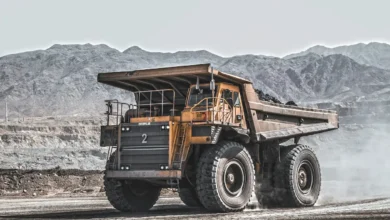Wages Of Tradies In Australia
Wages Of Tradies & Apprentices In Australia
Skilled tradies are the backbone of Australia’s construction industry, with over 1 million workers across trades like electrical, plumbing, carpentry, machinery operations, and many more. Their skills are in high demand as the nation continues to grow, however, wages can vary greatly across different roles.
In this article, we will explore the earning potential of key trades in Australia, looking at average wages per hour and per year, as well as examining which roles bring in the highest paycheques and which are the most difficult to master.
Discover how an experienced qualified tradie can match or even exceed the salaries of many office-based professionals. Location, experience level, qualifications, and economic conditions all contribute to wage variations. From bring an arborist looking after gardens to a plumber installing hot water systems, learning a trade ensures you will always have work and a decent income.
But overall, building a career as a tradie in Australia promises solid job prospects and good earning potential for those willing to put in the hard work required to develop expert technical skills through apprenticeships and on-the-job training.
How much does a tradie earn in Australia per hour?
The hourly wage for tradies in Australia can vary significantly depending on the specific trade, experience level, and location. However, on average most tradies in Australia earn between $25 to $50 per hour.
Some of the highest-earning trades per hour include:
- Electricians – $30 to $60 per hour
- Plumbers – $30 to $55 per hour
- Refrigeration Mechanics – $35 to $50 per hour
- Lift Mechanics – $35 to $60 per hour
- Carpenters – $25 to $45 per hour
- Bricklayers – $30 to $50 per hour
- Painters – $25 to $40 per hour
- Concrete Workers – $25 to $40 per hour
Apprentice tradies tend to start at the lower end of these ranges, while fully qualified and experienced tradies can earn towards the top end. Location also impacts earning potential, with tradies in remote areas or in high demand able to charge more per hour.
The average full-time annual salary for tradies ranges from $50,000 to $100,000 depending on experience and trade. But most tradies are paid by the hour rather than an annual salary. Their weekly or annual take home pay can vary significantly depending on the number of hours they are able to work.
What is the highest paid tradie in Australia?
The trade with the highest earning potential in Australia is electrical engineering. Qualified electricians and electrical engineers can earn over $100,000 per year once fully qualified and experienced.
Here are some of the highest paid tradie roles in Australia:
- Electrical Engineer – $80,000 to $140,000+ per year
- Lift Mechanic – $80,000 to $120,000 per year
- Senior Electrician – $80,000 to $120,000 per year
- Senior Plumber – $75,000 to $120,000 per year
- Refrigeration Mechanic – $75,000 to $110,000 per year
- Senior Air Conditioning Mechanic – $75,000 to $110,000 per year
- Hydraulic Mechanic – $70,000 to $100,000 per year
- Construction Supervisor – $80,000 to $100,000 per year
- Carpenter – $60,000 to $90,000 per year
- Bricklayer – $60,000 to $90,000 per year
The highest paid tradies are typically in roles that require additional qualifications and experience such as supervision, complex technical skills, or engineering degrees. Their annual salaries can match or exceed many white-collar professions.
What is the lowest paid trade in Australia?
While there is no definitive ranking of lowest paid trades in Australia, some of the lower paid roles include:
- Painters – $40,000 to $60,000 per year
- Plasterers – $40,000 to $60,000 per year
- Concrete workers – $40,000 to $60,000 per year
- Glaziers – $40,000 to $60,000 per year
- Flooring workers – $40,000 to $60,000 per year
- Landscapers – $40,000 to $60,000 per year
- Roof Tilers – $40,000 to $60,000 per year
- Wall and Floor Tilers – $40,000 to $60,000 per year
- Stonemasons – $40,000 to $60,000 per year
Many of these trades earn average salaries in the range of $40,000 to $60,000 per year. However, there is still good earning potential within these trades for those who are highly skilled, hard working, or in leadership roles.
The location also significantly impacts salary. Those working in major cities generally earn more, while tradesmen in regional areas earn less. Experience level is also a major factor, with apprentices starting on lower wages.
What is the hardest trade to learn?
Determining the most difficult trade is highly subjective, as each involves its own complexities and challenges. However, some of the trades commonly considered most difficult to master include:
Electrical
Mastering electrical wiring, voltages, currents, and safety procedures to work on live circuits requires extensive training and experience. Fault finding can also be complex.
Plumbing
Plumbing involves technical knowledge of pipes, fittings, gases, and fluids. As well as the physical demands of working in tight spaces and varied environments.
Refrigeration Mechanic
Understanding complex cooling and HVAC systems, gases, pressures, and electronics requires an aptitude for technical problem-solving.
Lift Mechanic
Installing and maintaining lifts, elevators, and escalators is highly demanding given safety requirements and complex mechanical, hydraulic, and electrical systems.
Bricklaying
Laying bricks and masonry to very fine tolerances is physically demanding. Understanding structural engineering principles is also key.
Carpentry
A high degree of precision and spatial awareness is needed to work across many carpentry tasks from framing to cabinets and fine woodworking.
Diesel Fitter
Being responsible for repairing and maintaining heavy diesel vehicles and equipment is a challenging task. A 4-year diesel fitting apprenticeship teaches the skills to diagnose and fix engines, steering, brakes, electrics, and more. Ongoing training is needed to stay up-to-date with changing technology.
vehicles and equipment is a challenging task. A 4-year diesel fitting apprenticeship teaches the skills to diagnose and fix engines, steering, brakes, electrics, and more. Ongoing training is needed to stay up-to-date with changing technology.
Overall, the trades requiring the highest levels of technical knowledge, problem-solving ability, spatial skills, and precision are likely the most difficult to master. However, a commitment to apprenticeship and on-the-job training is essential no matter the chosen trade.
Which tradie skills are most in demand in Australia currently?
With the construction sector booming in Australia, especially across Sydney and Melbourne, certain trades are in extremely high demand. These skills are associated with the highest earning potential currently:
- Electricians – With surging demand for electrical wiring across commercial and residential buildings, electricians are scrambling to keep up. Those with expertise in power distribution, lighting, and renewable energy integration are most sought after.
- Plumbers – Rapid growth in apartment blocks and water infrastructure means qualified plumbers can earn over $100,000 annually if they have gas fitting experience. Commercial and civil plumbing skills are highly prized.
- Carpenters – As both cities and regions expand, carpenters able to work with timber and steel framing are in short supply. Experience with pre-fabricated installation is advantageous.
- Refrigeration Mechanics – With heatwaves increasing and air conditioning ubiquitous, technicians able to install and maintain cooling systems can write their own tickets. Expertise in commercial cooling and energy efficiency gives the earning edge.
- Bricklayers – Major apartment, road, and infrastructure projects require bricklayers who work quickly without compromising quality. Their niche expertise makes them hard to replace in big jobs.
So while demand is healthy across all trades, these five areas provide the greatest opportunity currently for high earning potential in Australia’s booming construction industry.
Conclusion
Tradies earn a wide range of hourly and annual salaries in Australia based on their trade, experience, and location.
The highest-paid tradies can earn over $100,000, while the lower-paid trades bring in $40,000 to $60,000 per year on average.
Electrical, plumbing, and refrigeration mechanics are among the most complex and challenging trades to learn. With hard work and dedication, tradies of all kinds can benefit from the high demand and solid earning potential of skilled trades in Australia.

